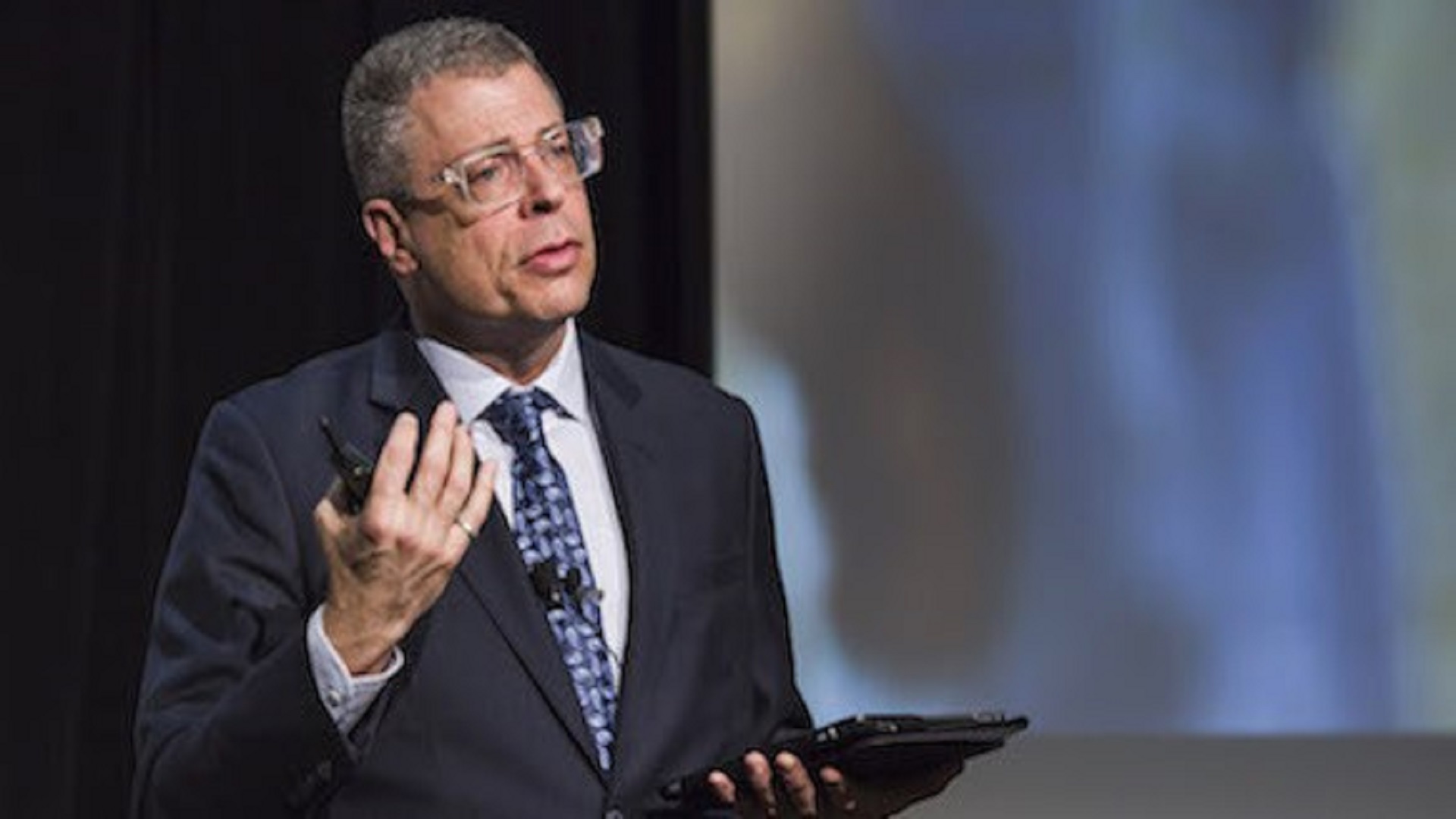Smartphone technology can transform the economy, futurist Mark Pesce told the Business Advantage Papua New Guinea Investment Conference in Sydney earlier this month. He painted a long-term picture in which digital technology will allow the country to reap the benefits of the post-industrial era.

Futurist Mark Pesce. Source: Business Advantage International
Pesce’s goal, in a wide-ranging hour-long talk, was to show how PNG could raise its GDP per capita four-fold, to that of a medium-developed country, by 2050.
‘The smartphone is the most important tool since the invention of the metal axe handle, a few thousand years ago,’ said Pesce, who spent six months researching his presentation in collaboration with conference organiser, Business Advantage International.
‘It is a universal tool. A smartphone can be used for communication, for commerce, for education, for community, for culture. We’ve only just started to scratch the surface.’
Pesce said there should be a policy to drive up the rates of smart phone ownership.
‘The solution is to allow telcos to go into banking.’
As of January, nearly 40 per cent of Papua New Guineans owned a mobile. It’s likely that a bit more than half of these folks would own a smartphone. So, that’s a smartphone ownership rate of around maybe 25 per cent.’
The target over the next five years, he said, should be to drive the rate of smartphone ownership to 85 per cent of the population.

The increased global use, 2010-2020, of smartphones (blue) and PCs (orange). Source: Mark Pesce
Infrastructure
Pesce said it would be necessary to build up mobile infrastructure so that the entire nation has mobile coverage and mobile broadband capacity.
‘That’s a significant investment in telecoms.’
To get an adequate return on their investment, telcos would need to find revenue lines that do not primarily rely on charging heavily for minutes and data, Pesce contended.
The solution is to allow PNG’s telcos to go into banking, and banks into telecommunications. ‘Mobile money is already offered in Papua New Guinea—and it can be a powerful accelerant to the economy.
‘‘It turns money into something that is fully digital—and secure.’
‘Mobile money brings the unbanked into the banking system, and provides a pervasive payments platform for both individuals and businesses. It also creates an audit trail—which is great for the tax collector.
‘The outcome will be some of the most interesting businesses in the world, that understand both banking and communications.
‘By prioritising the infrastructure that supports sharing, and placing value on the kinds of sharing that improve the capacities and resilience of the nation, you can create a cycle of positive reinforcement that gets people and businesses doing the right thing because it does right by them.’
Innovations
Pesce said mobile money is already available, but he believes it is only in its infancy. He pointed to emerging forms of digital money such as ‘distributed ledgers, or blockchains or cryptocurrencies.’
‘It turns money into something that is fully digital—and secure. No worries about counterfeiting or cooked books. Plus, it provides a complete audit trail of all transactions.
‘Digital technology will also transform logistics in PNG.’
‘For the last several years many central banks—including some very close to Papua New Guinea—have been developing their own digital currencies. They popped up at the same time as the smartphone.
‘Individuals and businesses will be free to trade as never before. There will be no question about access to the banking system. It will all be about access to capital.’
Drones

An artists’ impression of cargo drones in action.
Pesce said that digital technology will also transform logistics in PNG over coming decades, pointing to the development ‘high capacity autonomous drones, capable of carrying several hundred kilograms.’ He said they fly themselves, are electric and are easy to operate. Prototypes are already in development, he noted.
‘The marginal cost of moving goods across Papua New Guinea will drop to a fraction of its current cost, opening up even more opportunities for trade. An autonomous drone is a smartphone with propellers.’
Farming will also be transformed in the longer term, through the use of robotics. ‘The farming robot is more than just a dumb tool. It is connected and intelligent. And it brings that intelligence to every farmer.
‘It makes the farmers smarter farmers—and more productive ones. And because it is built from off-the-shelf parts, including a smartphone, it’s not expensive.’


